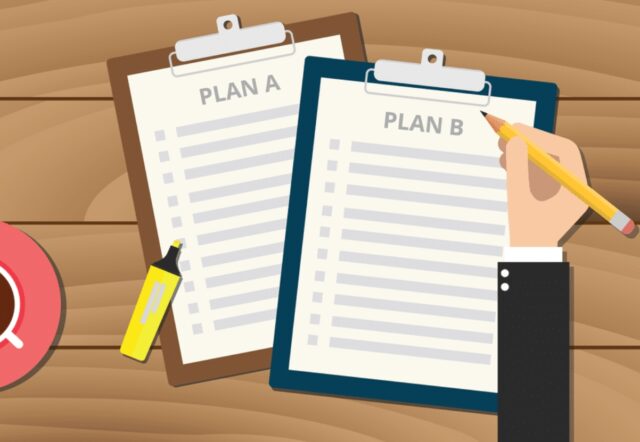
A graduate student’s path toward earning a higher degree includes the dissertation proposal defense.
Preparing properly by repeating the presentation and imagining the panel’s probable queries is crucial to eliminate this anxious sensation.
Also, looking for advice and support from mentors, classmates, and family members who may offer encouraging words and critical criticism is crucial.
The final phase for doctorate candidates and Master’s degree students is the thesis defense meeting.
It comprises two or more professors and other persons to ensure the student is knowledgeable about their subject and emphasis area.
It may be rewarding since students can demonstrate what they’ve learned after spending months or years studying, writing, and rewriting.

What Is A Dissertation Defense?
A graduate student’s career pivotal point is the dissertation defense. It must describe the author’s research and how it relates to other academic disciplines.
It usually lasts two hours and could be accessible to the general public. It seeks to give participants a chance to present their finished Ph.D. work, receive recognition, and discuss and evaluate their dissertations.
The student will choose the defense date after consulting with the dissertation committee. The student’s dissertation committee chair and at least one other member must be physically present.
All departmental faculty members must be permitted to attend the defense. Allowing wider attendance will be up to the student in conjunction with the committee.
How To Prepare For Your Dissertation Proposal Defense?
Given below are some of the most important tips that will help you prepare for your thesis proposal at full throttle:

1. Make A List Of The Expected Questions
Anticipate questions and prepare responses in order to create a greater impression on your committee.
Consider any follow-up inquiries, and be prepared to back up your responses with easily available supporting information or proof.
Furthermore, pay close attention to the posed question and pause to collect your thoughts before responding.
Write down any questions you expect to be asked about the goals of your study, its methods, its highlights of results, and its conclusions the day before the presentation.
Practice your delivery and timing to ensure you stay within the time limit.
Also, to improve your presentation and make it more interesting for your audience, think about utilizing visual aids like graphs or charts.
2. Check Out How Others Are Presenting
You may have access to a larger choice of subjects and viewpoints to learn from by attending open dissertation presentations at other universities.
Attending these sessions also helps you build relationships with other students and academic staff who share your interests.
Visiting thesis defenses at other institutions may help you realize that the procedure is not terrifying, learn the tips and methods used by other researchers to defend their theses, and comprehend why the university and the scientific community require dissertation defense.
Attending dissertation defenses may also increase your awareness of various research procedures and themes, allow you to network with other academics, and improve your research and presenting skills.

3. Create The Structure Of Your Presentation First
The likelihood of attaining objectives, such as gaining money for a project or persuading a customer to pick your company’s services, can be significantly increased by a well-designed and presented presentation.
Investing the time necessary to make a well-structured presentation, high-quality slides, a polished delivery, and presenting confidence is critical.
Also, to improve the impact of your presentation, think about adding visual components like graphs or charts.
You may improve your chances of success and create an enduring impact on the audience by putting effort into your presentation.
Practice your delivery and timing to communicate your topic within the allocated time properly.
4. Do Not Make Your Presentation Too Wordy
Most defenses of dissertation proposals use PowerPoint slides. Limit the number of words on the slides! People will begin to pay attention to the slides rather than you.
To make your arguments more clear, use bullet points and pictures. Be confident in your knowledge of the content and practice your delivery.
To prevent overwhelming the audience, keep the quantity of text on each slide to a minimum. Employ succinct words and phrases to communicate your point effectively.
Maintain eye contact with your audience and use appropriate body language to engage them.
To improve and engage your audience, use visuals and visual aids in your presentation. In order to feel more prepared and confident during delivery, practice it beforehand.

5. Practice Before Presenting
Practice with a former committee member to learn helpful insights and pointers on participating in meetings and dealing with group dynamics.
You may learn how to act professionally on a committee by observing their behavior during meetings.
Please prepare and feel confident during the real committee meeting with this feedback.
Practicing with an experienced person can provide significant insights into the committee’s dynamics and how to handle any possible difficulties or disagreements.
It is crucial to remember that committee meetings may be demanding and stressful. Still, with the right planning and direction, you can improve your chances of success and accomplish your objectives.
A more fruitful and effective committee meeting might result from getting input and rehearsing beforehand.
6. Put Enough Emphasis On The Introduction
The speaker’s opening statement and thesis should captivate the audience and leave a lasting impression since they will be held in high regard.
Attracting readers’ attention with a strong, engaging introduction that establishes the premise is critical—project confidence and enthusiasm when delivering your ideas to keep the audience interested.
The most crucial question is—”Is this presentation worth the time?
This must be answered at the very beginning of your presentation.
Establishing a strong first impression is crucial by keeping it concise, interesting, and topical.
In order to quickly catch their attention and arouse their interest in the issue, you could also think about opening with an interesting story or statistic.

7. Come With A Backup Plan
Having a backup plan is crucial since technology and life may be unpredictable. When technology fails, handouts and clean clothes can be helpful.
It’s also crucial to test out any technology beforehand and to have backup equipment or a specialist on call in case of problems.
Thesis defenses are not about being flawless and knowing everything; rather, they are about how you handle difficult circumstances.
Maintaining composure and honesty is critical when you don’t have the answer to a question.
Do remember that your committee wants you to succeed and is there to assist you in the process.
8. Take Help
Taking help from professors, guides, and friends can help you open up to new ideas and approaches to present your dissertation proposal.
Moreover, you can also get help from a trustworthy dissertation writing service UK. This service can help you structure your dissertation proposal according to your methodology of research and literature.
Taking assistance doesn’t make you less capable; on the contrary, it enhances it by bringing in new ideas and views.
Also, it demonstrates your willingness to work hard in order to achieve and advance. Asking for assistance demonstrates strength and a desire to succeed rather than weakness.









